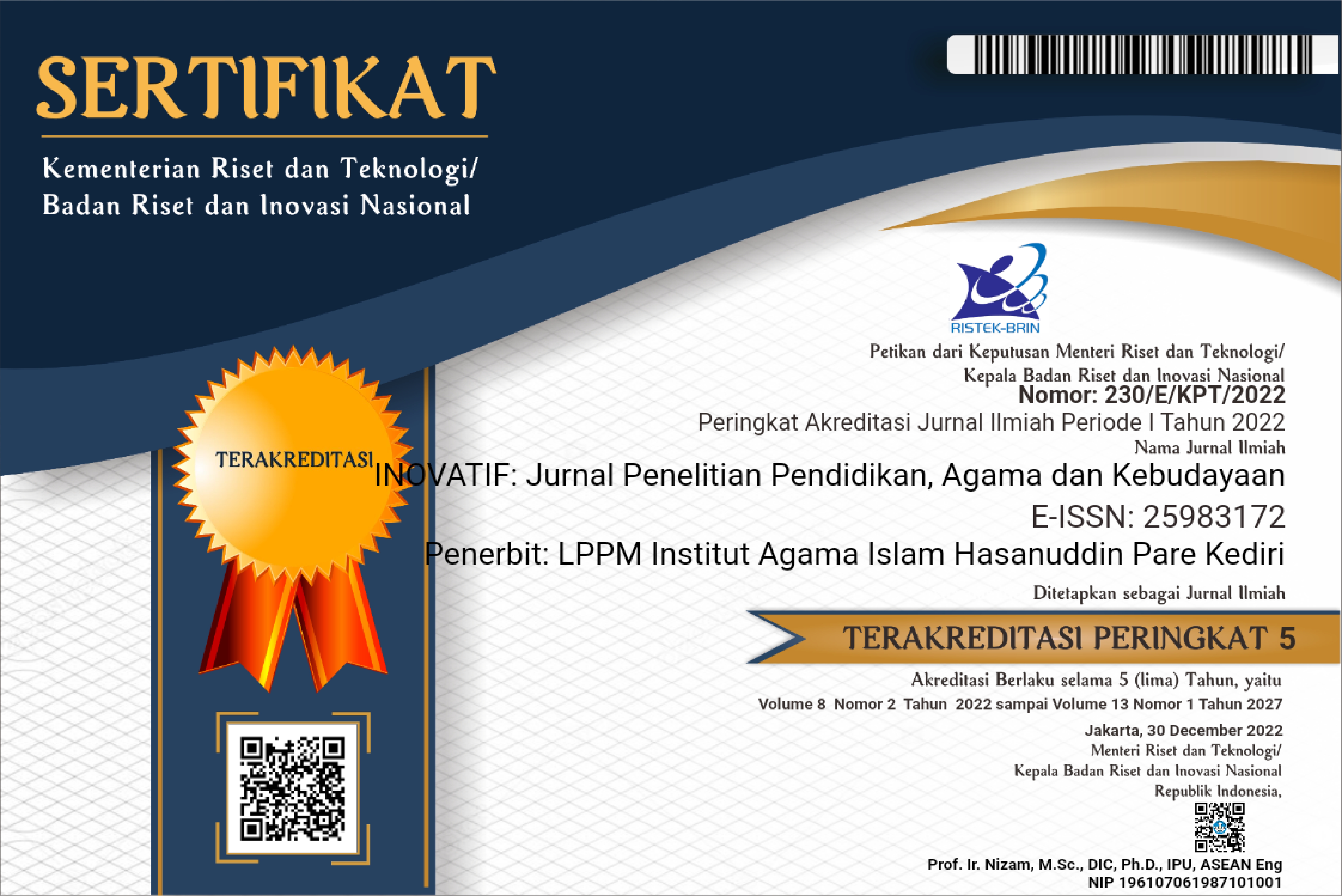MANAJEMEN KURIKULUM PEMBELAJARAN PENDIDIKAN AGAMA ISLAM
DOI:
https://doi.org/10.55148/inovatif.v9i2.772Abstract
Implementation of Islamic Religious Education (PAI) curriculum management is an effort to make the PAI learning process a success. When the PAI curriculum is managed well, PAI learning objectives will be easily achieved. The research aims to describe PAI learning curriculum management. This research uses a qualitative research approach with the type of library research. The results of the research show that: 1) PAI learning planning is a decision-making process about what must be done to achieve PAI learning objectives are determining effective time and week allocations; Prepare Prota, Promissory Note, Syllabus and RPP; 2) the implementation of the PAI learning curriculum is the ongoing process of teaching and learning in the classroom which is the core of activities in educational institutions. 3) The implementation of the PAI learning curriculum includes three learning stages, namely the introductory or pre-learning stage, the core of learning and the conclusion of PAI learning; 4) evaluation of the PAI learning curriculum is a process for monitoring and assessing the learning process that has been carried out and the abilities of students who have carried out PAI learning activities, both assessing the knowledge, attitudes or behavior and skills of students. Evaluation of the PAI learning curriculum includes two aspects, namely evaluation of learning outcomes and evaluation of the learning process. The PAI learning curriculum evaluation tools include learning outcomes tests, test criteria and types of tests
References
Downloads
Published
Issue
Section
License
Please read Copyright Notice for Inovatif: Journal of Research on Religious Education and Culture









